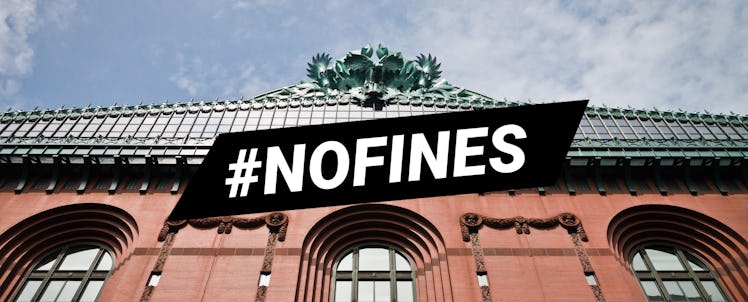The Chicago Public Library Found Out How To Get You To Return Your Overdue Books
They don't work, they keep people from going to the library, and they harm the poorest.

Recently, Chicago Mayor Lori Lightfoot eliminated late fees and the outstanding debt of anyone who had borrowed books at the Chicago Public Library system. Within three weeks, Chicago Library Commissioner Andrea Telli said that book returns had increased by 240 percent. Well, damn.
“These books have a value and cost money to buy. We want those assets back,” said Telli. “We also want the patron to come back.” More and more libraries across the country are doing — and have done — the same. And the response has been overwhelmingly positive.
Of course it does. Forgiving library fines just makes sense. Surprisingly, or unsurprisingly, collecting fines is expensive. For another, it often outstrips the cost-benefit of collecting the fine itself, leaving those who owe fines struggling and the collector struggling, too. The majority of people don’t ignore late fees and keep books because they want to stick it to libraries and the law; they do so because they can’t afford to pay the fees in the first place. And these are the very people who need libraries the most — the poorest among us who don’t have consistent access to the Internet, to bookstores, to textbooks that don’t cost a million dollars, and a quiet place to work.
Chicago followed the footsteps of many other major cities: both the New York and the Brooklyn Public Library announced a fine forgiveness program for kids and teenagers, 161,000 of whom had their borrowing privileges suspended because they had an overdue fine of more than $15. It’s clear that the kids who couldn’t pay it weren’t just dicking around. They just couldn’t pay, and the old ways of incurring overdue fees clearly wasn’t working. The fines just drove New Yorkers away from the services they needed.
An investigation found that for many families, once a library card was locked, it was nearly impossible to unlock it. At the Brooklyn Public Libraries, almost half of the cards that were locked were in the borough’s poorest neighborhoods, and 92 percent of the kids who lived in those neighborhoods that had their cards locked never got their access to borrowing privileges back until the fees were forgiven wholesale. It’s clear that the only way forward when it comes to ensuring libraries are accessible and helpful to all citizens is to make the borrowing system as least punitive as possible.
San Diego clearly came to that conclusion in April when they decided to forgive $2 million in library fees and pardoned 133,000 people who failed to return their books. The reason? In the city’s lowest income neighborhoods, 40 percent of library members couldn’t check out books due to outstanding fees.
“I felt that banning a child from our public libraries due to an overdue book fine is unreasonable and contradictory to the mission of our libraries,” said One San Diego City Council Member. Another said that the $600,000 the city had collected from overdue library fines cost about $1.2 million to collect — clearly outstripping any financial benefit that might be possible through levying fines while keeping people who need the library out of it.
The Phoenix Public Library also recently announced plans to cease library fines, issuing an “All Fines Forgiven” campaign where all overdue fines were wiped from the record. Going forward, Phoenix library members will get three notices that their books are overdue and then, after 51 days, be fined a replacement fee (the cost of replacing the book) — a far cheaper fee incurred than an standard overdue fine, which compounds over time.
As San Diego Library Director Misty Jones said, “Libraries are known as the ‘great equalizers’ because we provide equal access for all patrons, regardless of their socio-economic status. Wiping the slate clean of outstanding fines means welcoming back many of the under-served patrons who most need our services.” Libraries provide kids with access to books, story time, events, and internet. These services are crucial. And these major moves towards getting rid of the fines and fees system altogether in our nation’s libraries is a positive step in that direction.
This article was originally published on